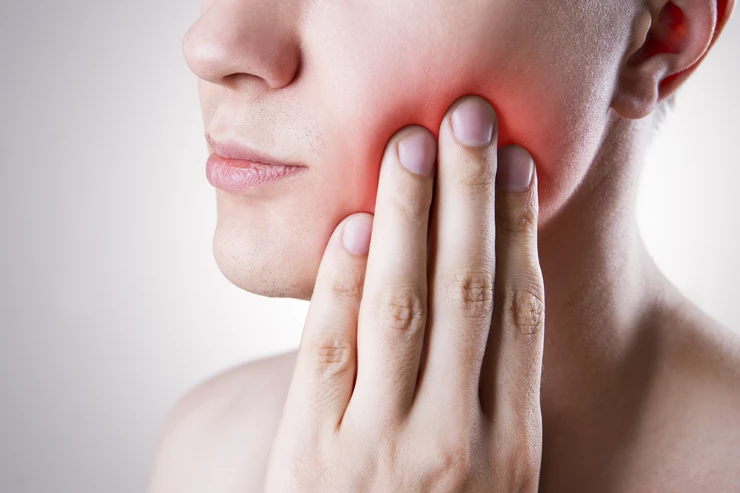Many people don’t realise that there are a lot of reasons why your tooth may be causing pain. Dental pain should not be ignored. Quite often the treatment required is less invasive if the problem is detected and treated early.
The most common reasons for tooth pain include:
Dental Caries (cavity)
How it happens: Bacteria in your mouth feed on food particles which produce acid that, with time, eat through the enamel layer of your tooth, exposing the sensitive dentine below.
Symptoms: Early signs a cavity is forming is a reaction to sweet or cold foods.
Enamel erosion
How it happens: Acids in your diet, or from a stomach or digestive condition, can wear away your tooth enamel, exposing the sensitive dentine.
Symptoms: Signs of enamel erosion include sensitivity to temperature or touch, particularly cold drinks and cold air.
Gum recession
How it happens: Trauma from brushing too hard, or oral piercings, can cause your gums to recede exposing the sensitive root surface of your teeth.
Symptoms: Teeth may be sensitive to temperature, air and sweets.
Recent dental work
How it happens: Deep fillings or treatment involving the nerve of your tooth can cause the tooth to be a bit unsettled for a couple of days.
Symptoms: The tooth that was treated may be sensitive to pressure, air, sweet foods, or temperature.
Loose or lost filling
How it happens: Air, food particles and bacteria can infiltrate and irritate exposed nerve endings if your filling is dislodged or no longer sealing a cavity well.
Symptoms: Symptoms can vary depending on the depth of cavity, ranging from sensitivity to toothache.
Chip, crack or fracture
How it happens: Teeth can be weakened over time due to pressure caused by biting, clenching and grinding. This is more likely to occur if the tooth has already been filled or you are missing teeth causing extra load.
Symptoms: Sharp pain when biting or releasing pressure or sensitivity if the tooth has broken.
Periodontal disease
How it happens: Plaque build-up along the gum line sets hard with time making it impossible to remove with your toothbrush. This build up causes gum inflammation which results in bone and gum recession over time causing teeth to become loose.
Symptoms: Painful or bleeding gums and loose teeth.
Abscess
How it happens: A pus filled sac caused by an infection can occur at the base of the tooth root or in the space between the tooth and gum.
Symptoms: Severe constant pain and facial swelling.
Tooth grinding (bruxism) or jaw clenching
How it happens: Grinding and clenching teeth causes extreme stress and wears teeth down.
Symptoms: Tooth sensitivity and jaw soreness.
Referred pain
How it happens: Pain originating in another tooth can radiate to different teeth on the same side of your mouth.
Symptoms: Aching pain from several teeth.
If you have any concerns or any questions please call our friendly team on (07) 5495 4266.








